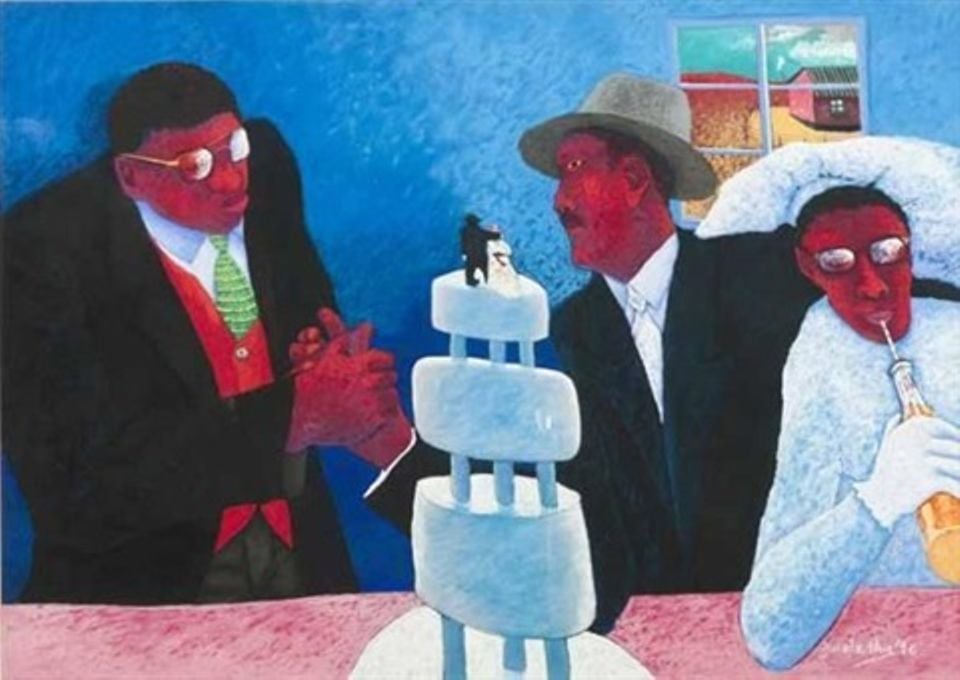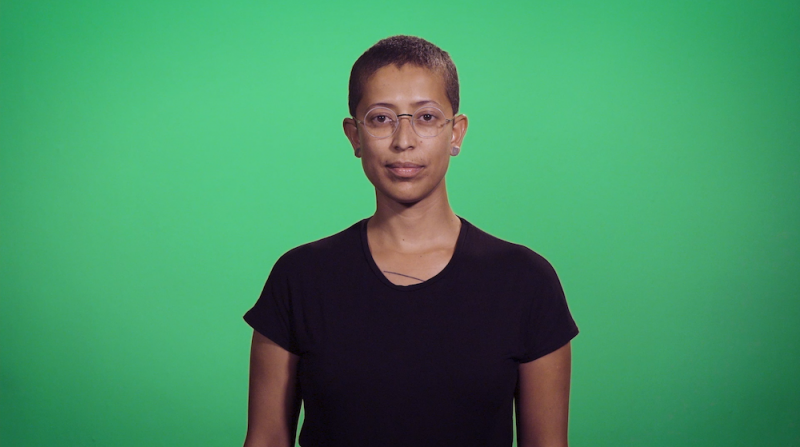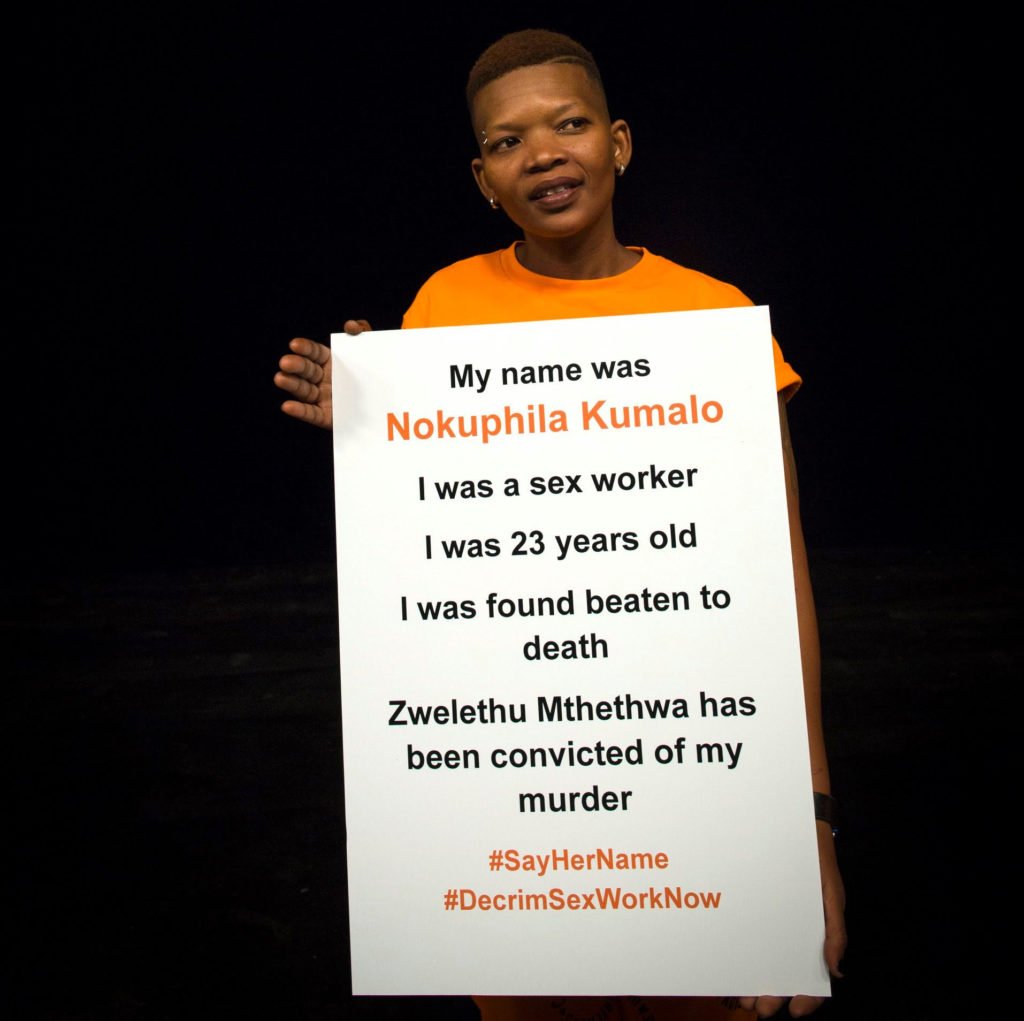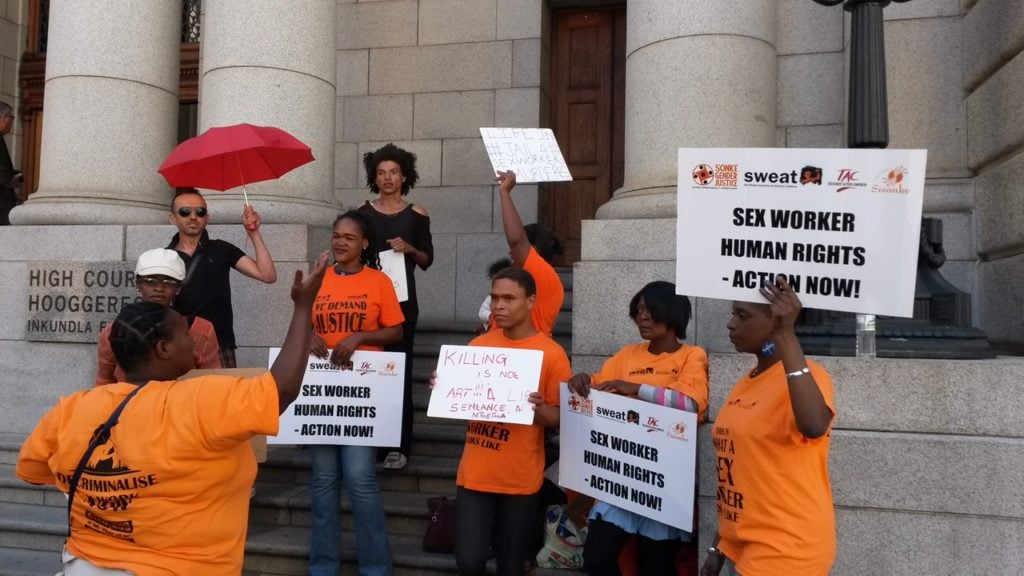On View
Artist Candice Breitz Pulls Her Work From a Show to Protest the Museum’s Display of Art by a Convicted Murderer
The protests are being led by a South African activist group.

The protests are being led by a South African activist group.

Sarah Cascone

Candice Breitz has joined advocates protesting the decision to display a work by convicted murderer and fellow South African artist Zwelethu Mthethwa in one of the inaugural exhibitions at the University of Pretoria’s Javett Art Centre. To show solidarity with the cause, Breitz has pulled her work from a concurrent show at the new South African museum.
The opposition against Mthethwa is being led by South African activist group Sex Workers Education and Advocacy Taskforce (SWEAT), who argue that the display of the work is harmful to the memory of his victim, Nokuphila Kumalo, and her still-mourning friends and family.
In 2017, following a prolonged trial, Mthethwa was found guilty of murder and sentenced to 18 years in prison for killing the 23-year-old prostitute Kumalo in April 2013. Video footage of the incident shows a man, who prosecutors identified as Mthethwa, getting out of the artist’s distinctive black Porsche and brutally kicking the young woman to death.
Breitz asked the Javett to replace her video, Profile (2017)—made in response to her experience representing South Africa at the 2017 Venice Biennale—with poster based on the #SayHerName social media campaign SWEAT began during Mthethwa’s trial. On Monday, Breitz told artnet News the museum had removed her work but not put up the poster. (A museum spokesperson told the Art Newspaper that “the poster does not fit into the curatorial premise” of the show,“101 Collecting Conversations: Signature Works of a Century.”)

Candice Breitz, Profile (2017). Video still ©Candice Breitz
The controversy raises larger questions about what to do with art produced by those who have done deplorable things—questions that have occupied the cultural world in recent years. SWEAT’s advocacy manager Lesego Tlhwale wrote in an op-ed in the local paper the Daily Maverick that “we believe that there is a need to communicate our zero tolerance to gender-based violence, including the consumption of art produced by perpetrators.”
The current exhibition marks the first time since the verdict that an institution has displayed Mthethwa’s work publicly. The painting in question, The Wedding Party (1996), shows a bride being ignored by her husband and another man at her reception and is included in the exhibition “All in a Day’s Eye: The Politics of Innocence.” The exhibition, featuring work from the collection of the retired financier Michael Javett, was organized by four women of color: prominent South African curator Gabi Ngcobo and researchers Donna Kukama, Simnikiwe Buhlungu, and Tshegofatso Mabaso.

Sydelle Willow Smith, Tenderlove. A Sex Workers Education & Advocacy Taskforce activist holding the poster SWEAT designed seeking justice for Nokuphila Kumalo, the prostitute who was murdered by South African artist Zwelethu Mthethwa. Photo by Sydelle Willow Smith.
In a statement, Ngcobo explained that she wanted to include the painting as part of a critical examination of the Javett Collection, and as a way to examine Mthethwa’s toxicity toward women. “Our intention with showing Mthethwa’s work is with the sole purpose of presenting it as ‘evidence’ that highlights how misogyny has played out in his work over time,” she wrote. “We can see through his work, the perpetuation of violence against women. We therefore elected to utilize his work to present a psycho-social analysis that exposes his violent actions as not emerging out of the blue. This work stands as another piece of evidence that exposes his misogyny and toxicity.”
Ngcobo noted that she and her team had revised the exhibition wall text “to create more clarity” following discussions with SWEAT. The text states that “despite hard evidence proving otherwise, Mthethwa maintained his innocence by stating he did not remember his deeds.”

SWEAT protesters outside of Zwelthu Mthethwa trial at the Western Cape High Court. Photo courtesy SWEAT.
“If Gabi Ngcobo, our country’s leading and most critical curator, thinks it is okay to offer wall space to Mthethwa again,” argued Breitz in a statement on Facebook, “then there will surely be a plethora of less well-intended collectors and speculators who will see fit to do the same.”
But regardless of the organizers’ intentions, SWEAT and Breitz contend, the display of Mthethwa’s work serves to raise his profile and potentially reinvigorate his market. (Mthethwa’s The Wedding Party was last sold at auction in 2013 for R89,600, or $10,107, according to the artnet Price Database.)
“101 Collecting Conversations: Signature Works of a Century” and “All in a Day’s Eye: The Politics of Innocence” are on view at the Javett Art Centre, the Javett-UP at the University of Pretoria’s Hatfield campus, 23 Lynnwood Road, Elandspoort, Pretoria, South Africa.